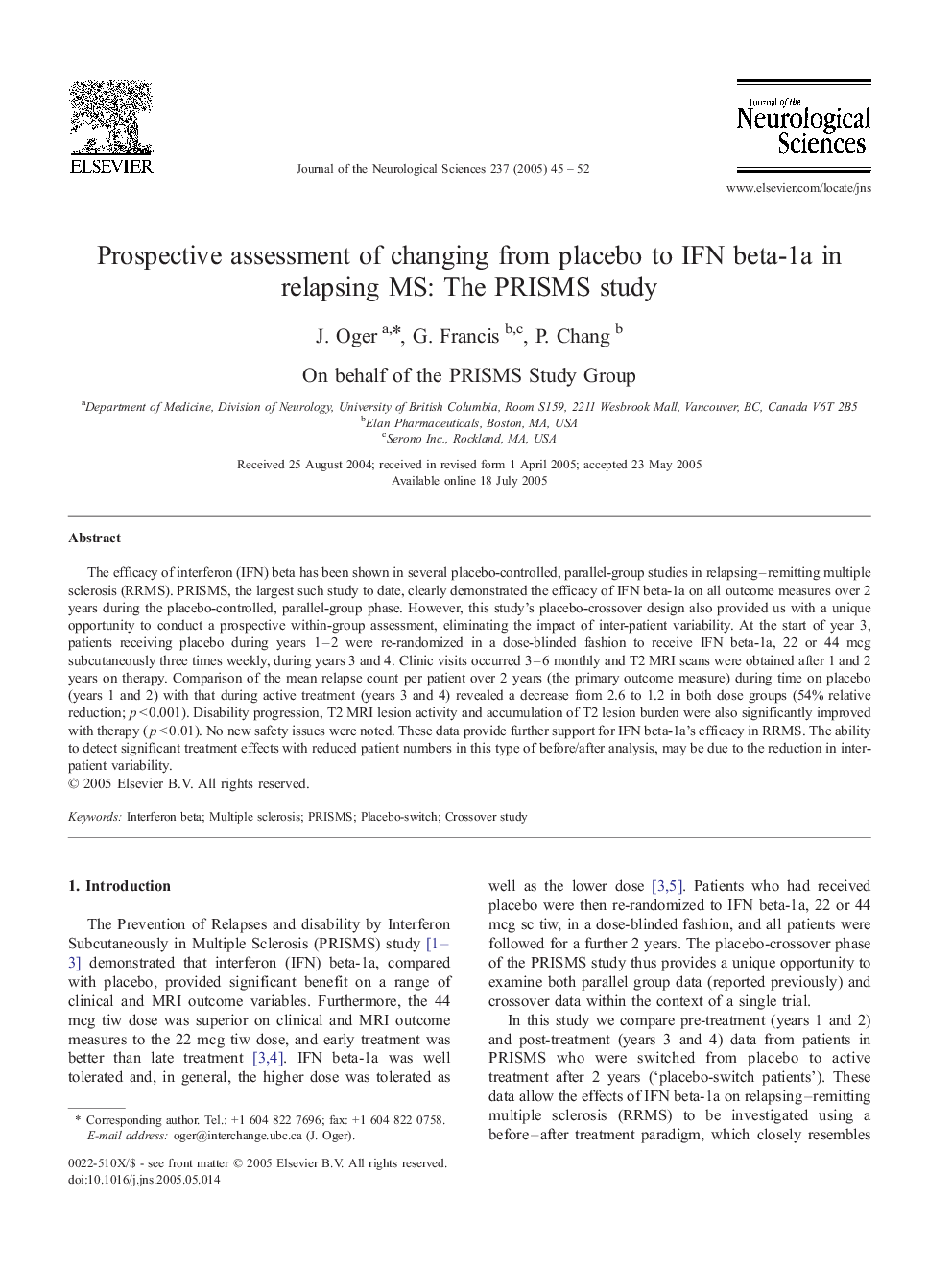| Article ID | Journal | Published Year | Pages | File Type |
|---|---|---|---|---|
| 9880229 | Journal of the Neurological Sciences | 2005 | 8 Pages |
Abstract
The efficacy of interferon (IFN) beta has been shown in several placebo-controlled, parallel-group studies in relapsing-remitting multiple sclerosis (RRMS). PRISMS, the largest such study to date, clearly demonstrated the efficacy of IFN beta-1a on all outcome measures over 2 years during the placebo-controlled, parallel-group phase. However, this study's placebo-crossover design also provided us with a unique opportunity to conduct a prospective within-group assessment, eliminating the impact of inter-patient variability. At the start of year 3, patients receiving placebo during years 1-2 were re-randomized in a dose-blinded fashion to receive IFN beta-1a, 22 or 44 mcg subcutaneously three times weekly, during years 3 and 4. Clinic visits occurred 3-6 monthly and T2 MRI scans were obtained after 1 and 2 years on therapy. Comparison of the mean relapse count per patient over 2 years (the primary outcome measure) during time on placebo (years 1 and 2) with that during active treatment (years 3 and 4) revealed a decrease from 2.6 to 1.2 in both dose groups (54% relative reduction; p < 0.001). Disability progression, T2 MRI lesion activity and accumulation of T2 lesion burden were also significantly improved with therapy (p < 0.01). No new safety issues were noted. These data provide further support for IFN beta-1a's efficacy in RRMS. The ability to detect significant treatment effects with reduced patient numbers in this type of before/after analysis, may be due to the reduction in inter-patient variability.
Related Topics
Life Sciences
Biochemistry, Genetics and Molecular Biology
Ageing
Authors
J. Oger, G. Francis, P. Chang, On behalf of the PRISMS Study Group On behalf of the PRISMS Study Group,
